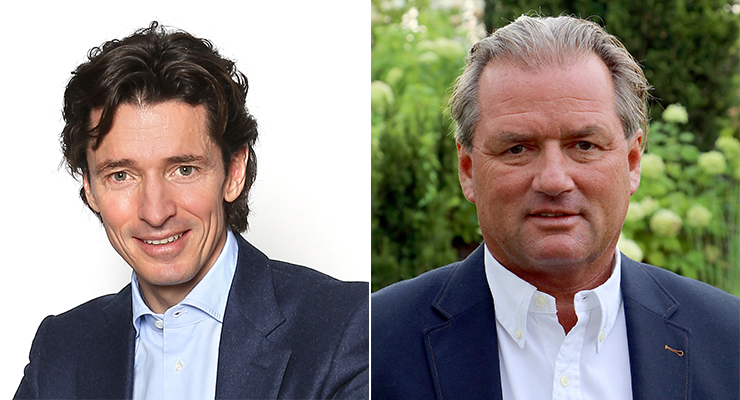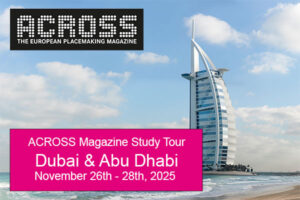ACROSS: YOU ARE A FRENCH DEVELOPER ENTERING THE OUTLET MARKET. WHAT IS YOUR MOTIVATION FOR TAKING THIS STEP?
ANTOINE FREY: The business of FREY is to be a developer, an owner, and a manager of open-air shopping destinations. This asset class is at the crossroads between retail parks and open-air shopping centers and outlets. The average size of the asset that we own is 50.000 sq m. We are pushing our assets to achieve an intense experience and strong efficiency in terms of convenience for the consumer and a frugal economic model for the retailer.
ACROSS: OPEN-AIR SHOPPING DESTINATION IS A CONVINCING YET UNUSUAL TERM WITHIN THE PLACEMAKING INDUSTRY.
FREY: True. To us, the definition of an open-air retail destination is a place where you can shop without feeling trapped in a box. The concept of big boxes, i.e., large indoor shopping centers, has been successful in the past but is currently struggling. The economic model is no longer compatible with the current retail situation. First, the operating costs of shopping centers are too high. In addition, consumers no longer want to be in a closed location.
That is a critical point. Shopping is leisure time and consumers also want to experience nature – even more after Covid. Moreover, open-air destinations are more sustainable and efficient, especially regarding their carbon footprint. I believe that the future of retail lies outdoors – also in the sense of returning to the old retail trade, primarily located in city centers.
ACROSS: OUTLETS AND OPEN AIR NATURALLY BELONG TOGETHER.
FREY: Of course, when you look at these open-air destinations, the asset class of outlets imposes itself. We were interested in this class of assets for several reasons. Outlets show a very strong alignment between the landlord and the tenants. It is a powerful, experience-oriented asset with solid marketing, and they are able to drag the catchment area much further than classical assets. We have always been very impressed by the quality of outlet assets.
ACROSS: WHY IS ROS RETAIL OUTLET SHOPPING THE CHOSEN PARTNER FOR FREY?
FREY: We have been interested in jumping into the outlet business for a long time, but we have never done so far because we were also convinced that outlets are particular know-how. Previously, our business was to attract customers to our assets by car twice a month. Now we need to be able to bring people from 90 minutes away to us by car, two or three times a year. That’s an entirely different business. When we met the ROS team, we immediately understood that we had met one of the very best operators
in Europe. It took me less than two minutes to decide and work together.
ACROSS: WHAT WAS THE MOTIVATION FOR ROS?
THOMAS REICHENAUER: ROS is a company 100% focused on third-party contracts. We are constantly working for other investors. That is one of our great strengths. However, this can become a weakness if, for example, one of our major landlord partners wants to go in a different direction. The question was: how can we secure our business in the long term? We wanted to collaborate with someone who invests in outlet centers and buys them. The other issue was planning for the continuity of our company.
How can we integrate our business into a larger company while preserving the company’s philosophy? Giving our shares to one of the prominent industry players was not an option for us. When we met with FREY, it was clear that we act and look at the market in a similar way. We share the DNA of a minor, owner-managed company, and we want to open up new markets with our teams and broaden our perspectives.
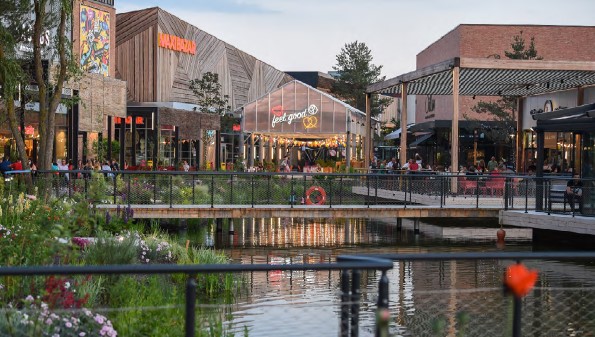
ACROSS: IF WE LOOK AT THE EUROPEAN OUTLET SCENE, WE SEE MANY SUCCESSFUL PROJECTS. BUT LESS SUCCESSFUL CENTERS ALSO EXIST. WHAT ARE, ACCORDING TO YOU, THE KEY DRIVERS FOR SUCCESSFUL PROJECTS?
FREY: The key driver to success is to stay focused. This is precisely what ROS is doing. It is to focus on the most critical person in the world: the client. In a digitally driven world, we have to offer people something if they are to get into their cars and drive up to 90 minutes to an outlet center. So, we have to welcome them accordingly. It’s more about hospitality than retail. The guests plan their trip, want to spend their whole day with us, and spend money. In addition to the discounts, the experience they share with their families and friends is just as important.
REICHENAUER: Absolutely. The focus on the small details distinguishes a thriving outlet center from a less successful one. The basic requirements must be correct: It has to be the right location, it needs the right brands, and the cooperation with the brand partners has to be close and trustful. When all of this is in place, the real quality work begins. When the center is open daily, you must work harder and more intensively than the others. In this sense, the outlet business is not comparable to the shopping center world. We are on-site every day and involved in everything to offer customers a great experience.
ACROSS: THE OUTLET BUSINESS IS ALSO A BRAND BUSINESS. HOW IMPORTANT IS THE FACTOR OF TRUST?
FREY: Trust is becoming increasingly important. We will return to some details about our joint project in Malmö later. But if we, as FREY, had started this project alone, our chances of gaining trust from the desired brands would be zero. The brands come to us because they have the ROS team in front of them. They know the people and ROS’s commitment to quality. So that is the key to success. The difference between a classic asset and an outlet is that a much larger part of the value rests on the shoulders of the manager than on the property itself. And the brands know that.
ACROSS: BEFORE WE TALK ABOUT MALMÖ. FREY HAS A STRONG BACKGROUND IN RETAIL PARKS. THIS SECTOR USUALLY FOLLOWS AN ENTIRELY DIFFERENT APPROACH THAN THE OUTLET BUSINESS. HOW DOES THIS GO TOGETHER?
FREY: Much better than you might think. However, FREY does not operate the classic retail parks you know from Germany or Austria. How FREY operates retail parks is a little different from how everyone else does it. I founded the company in 2008 with the strategy of taking the best from the retail park world, i.e., business model, accessibility by car, convenience for the consumer, and attractivity for new retailers. At that time, the retail parks were almost exclusively made up of discounters. So, we introduced the concept of the shopping promenade, which is more like an open-air shopping center than a classic retail park. This puts us in competition with shopping centers. One of our customers, for example, is Inditex, which is unique in the classic retail park world. Also, in terms of design, the concept is not far from a good outlet.
SHOPPING PLACES DESIGNED BY FREY
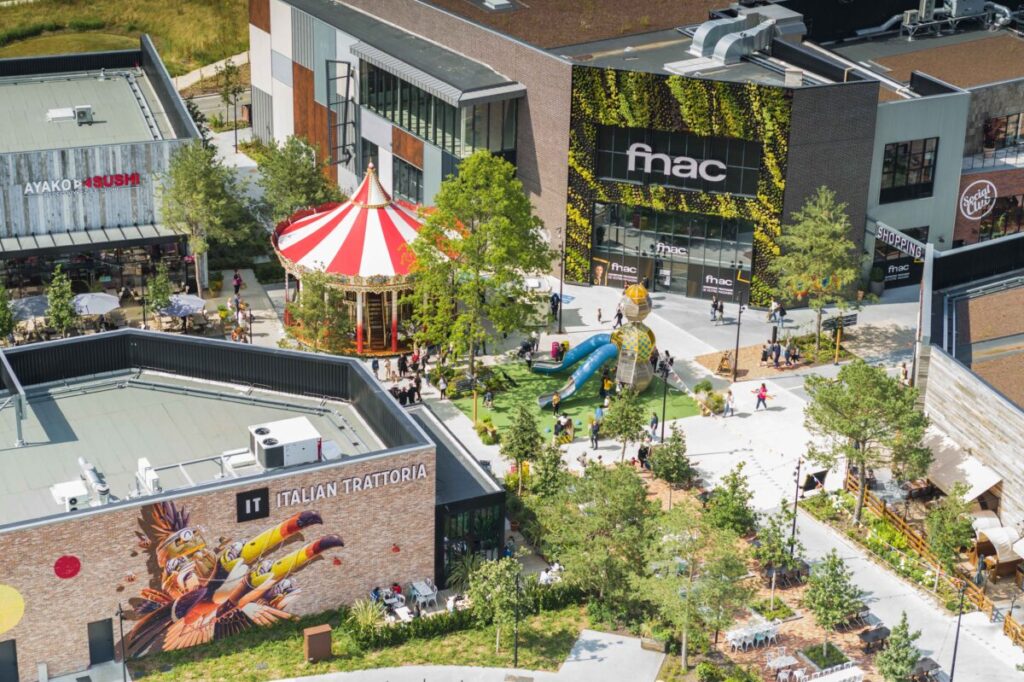
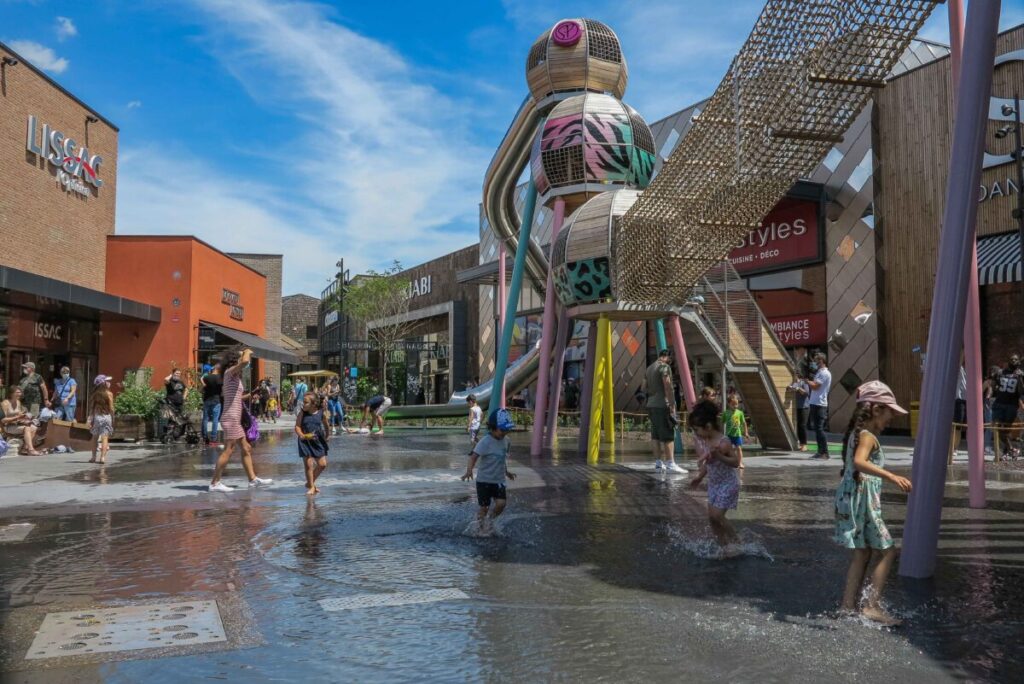
FREY’s open-air shopping places go much further than shopping centers and retail parks. The so-called Shopping Promenade is a multi-purpose space combining offerings and uses that aims to be a place for the whole family. The locations offer shops, F&B, entertainment, and events all year around.
ACROSS: SO WHAT ARE THE FIRST JOINT STEPS OF FREY AND ROS?
FREY: Within the next ten years, we want to build together one of the best European companies developing, owning, and managing outlets. To achieve this, we will continue to drive third-party management’s growth. Secondly, we will develop new assets together, and Malmö is the first opportunity we will take. Thirdly, we will buy existing outlets to expand and improve them. Fourth, we may use FREY’s development DNA to spice up classic full-price shopping destinations that are struggling now and convert those into outlets when there is a supply gap on the map.
ACROSS: THE LAST POINT IS CHALLENGING AND MUCH DISCUSSED IN THE INDUSTRY.
FREY: True, but we are confident that we have a very strong developer DNA and are very used to managing complicated developments.
ACROSS: WHEN WE TALK ABOUT NEW ASSETS. WHAT IS MORE STRAIGHTFORWARD: STARTING FROM SCRATCH OR CONVERTING A SITE?
REICHENAUER: We have experience in both and have shown excellent results. However, a considerable part of ROS’s success story is uncovering and exploiting unused potential. We have a great track record of successful takeovers and refurbishments of undermanaged places with the wrong investors but huge potential. Together, we can now strengthen that even more.
ACROSS: WHAT IS YOUR VIEW ON THE INVESTMENT MARKET IN 2024? A LOT OF INVESTORS ARE TRYING TO SELL OUTLETS AT THE MOMENT.
FREY: It’s a fantastic slot for opportunities. The real estate investment market has been frozen for two years. Investors are not back in the market yet. This puts FREY in a perfect position. Regarding assets over 100 million, the competition is minimal. So, it’s an ideal time for us to start acquiring. Fortunately, we have a solid balance sheet and are already funded, so doing deals is much easier. It won’t go on like this forever because interest rates will go down again, and the market will become more liquid again, but I think we have a lot of opportunities to get through in the next 12 months.
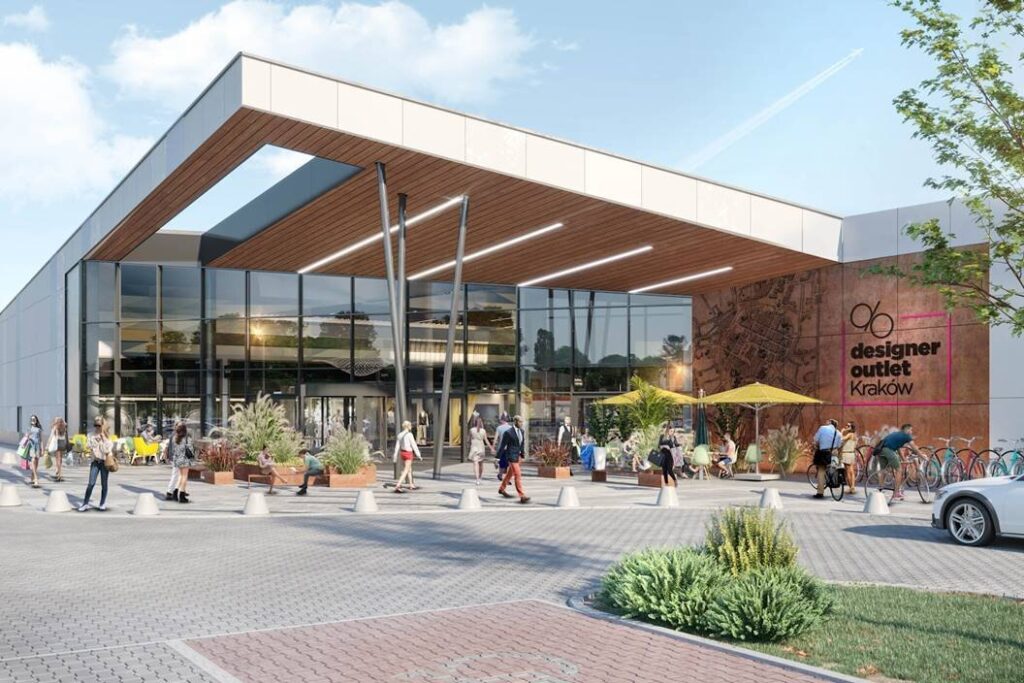
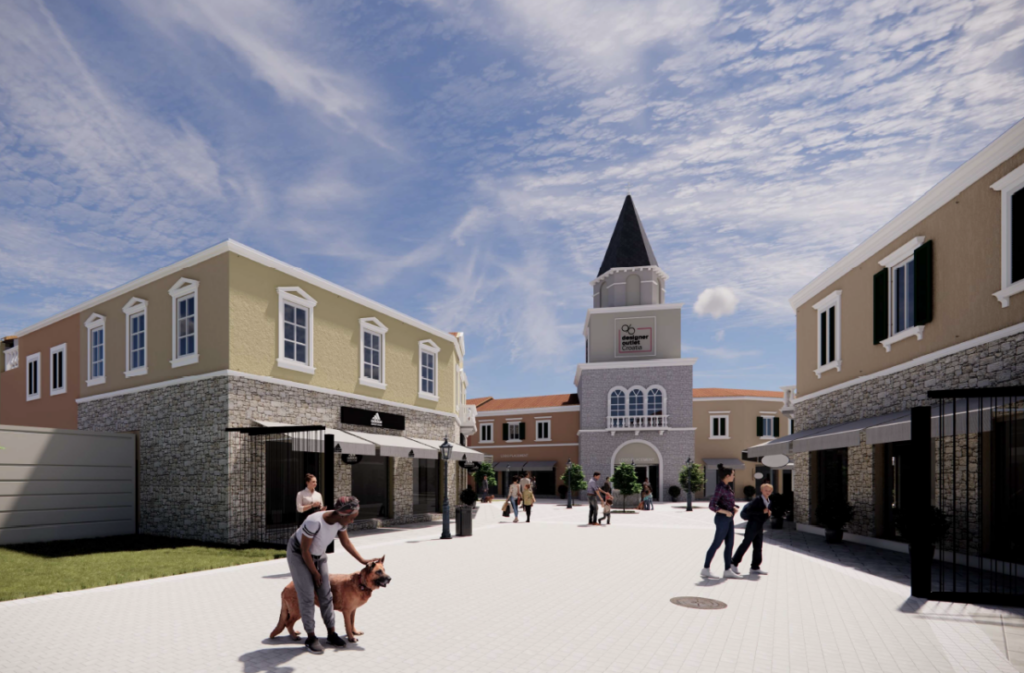
ACROSS: WHICH REGIONS ARE YOU INTERESTED IN IN EUROPE?
FREY: The key driver is to be opportunistic. We are not deciding what kind of asset will come into the market and when it will come into the market. We look for assets with potential where we can see growth potential and feel comfortable and familiar with the competition. We need a clear idea of future development. However, we do not focus on a specific country or region but solely on the potential of the assets.
ACROSS: LET’S TALK ABOUT MALMÖ. WHAT CAN WE EXPECT?
REICHENAUER: The Nordic states like Denmark, Sweden, or Norway, have always been on our list. We have done a lot of research on potential projects, but we have always struggled with the catchment: The travel times are long, the population is small, and light is rarely there. However, some outlets in the region aren’t underperforming. The Malmö project has one of the most significant potentials because it is not only for Sweden, but it is also very close to Copenhagen, Denmark. The catchment area is large, a very rich region with minimal competition. It’s the perfect first joint project that has enormous potential. We need to find the right brand mix, merchandise mix, etc. – all the required classic ingredients. The most important basis is already there: A great location, and we have a lot of joint power to make it successful.
ACROSS: WHILE THE OUTLET BUSINESS IS VERY SUCCESSFUL, MANY SHOPPING CENTERS ARE STRUGGLING. WHY DO YOU THINK THE DEVELOPMENT IS SO OPPOSITE?
FREY: A major problem in the shopping center industry is that most owners manage their assets via Excel sheets. They lost their retail spirit. They do not know their client because they are too focused on their KPIs. This leads to situations when they, for example, leave an empty place or an empty space instead of renting it out at a lower rent. They simply do not want to destroy value in their balance sheet because there is too much leverage on their assets. If they destroy value, they will break their covenant, and the banker will come and knock at the door. Their action seems reasonable, but you cannot manage an asset only with balance sheets. The second problem is that these assets are priced too high. When you compare the yield of outlets and shopping malls, there is a 150, sometimes 200 basis points of difference. So of course, you feel much more comfortable owning an outlet because the yield is much less stressed.
ACROSS: IT IS A HARSH REALIZATION THAT SHOPPING MALLS HAVE LOST THEIR CONNECTION TO RETAIL.
FREY: True, but I believe retail must be a permanent fest. When you go to an outlet, it’s a celebration because there’s always something new happening there. You can feel the joy. But it’s not a coincidence. Outlet managers work extremely hard to give customers a new and good experience. Most shopping centers haven’t done that in this way. And now they’re paying the price for it.
REICHENAUER: We have always discussed whether ROS can also manage shopping centers. But we have always said that we stay true to our DNA and, therefore, to our outlets and their unique USP. We are good at that. We want to develop further in this direction and look for innovations. The business is not rocket science, but you must get to grips with it and embrace innovative approaches. We cannot rely solely on customers like Nike and Adidas for the next 20 years. We have to identify new brands and bring them onto the floor. And we also have to make room for new concepts and ideas beyond that.
ACROSS: FOR EXAMPLE, F&B OR E-COMMERCE.
REICHENAUER: Absolutely. F&B is an important topic; it helps to increase dwell time. But here, too, you have to be innovative. Putting a Starbucks everywhere won’t be enough. We have to keep challenging ourselves. The most important thing is consistently asking guests and brand partners for feedback. What can be done better? Another advantage of our industry is that we are very well-connected in a positive sense. Outlet companies talk to each other even if they are competitors. We learn from and with each other. This is extremely helpful, especially when it comes to topics like omnichannel.
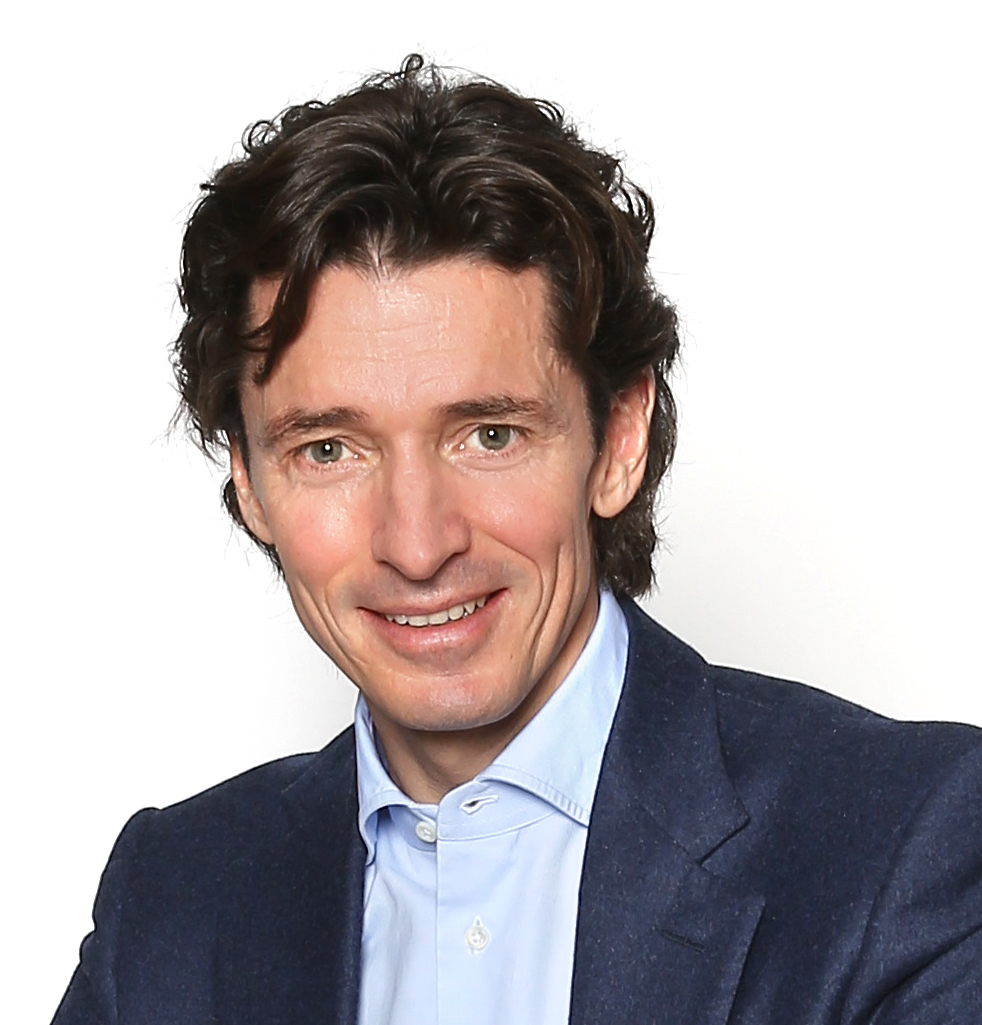
Antoine Frey
Antoine Frey is the CEO of FREY.
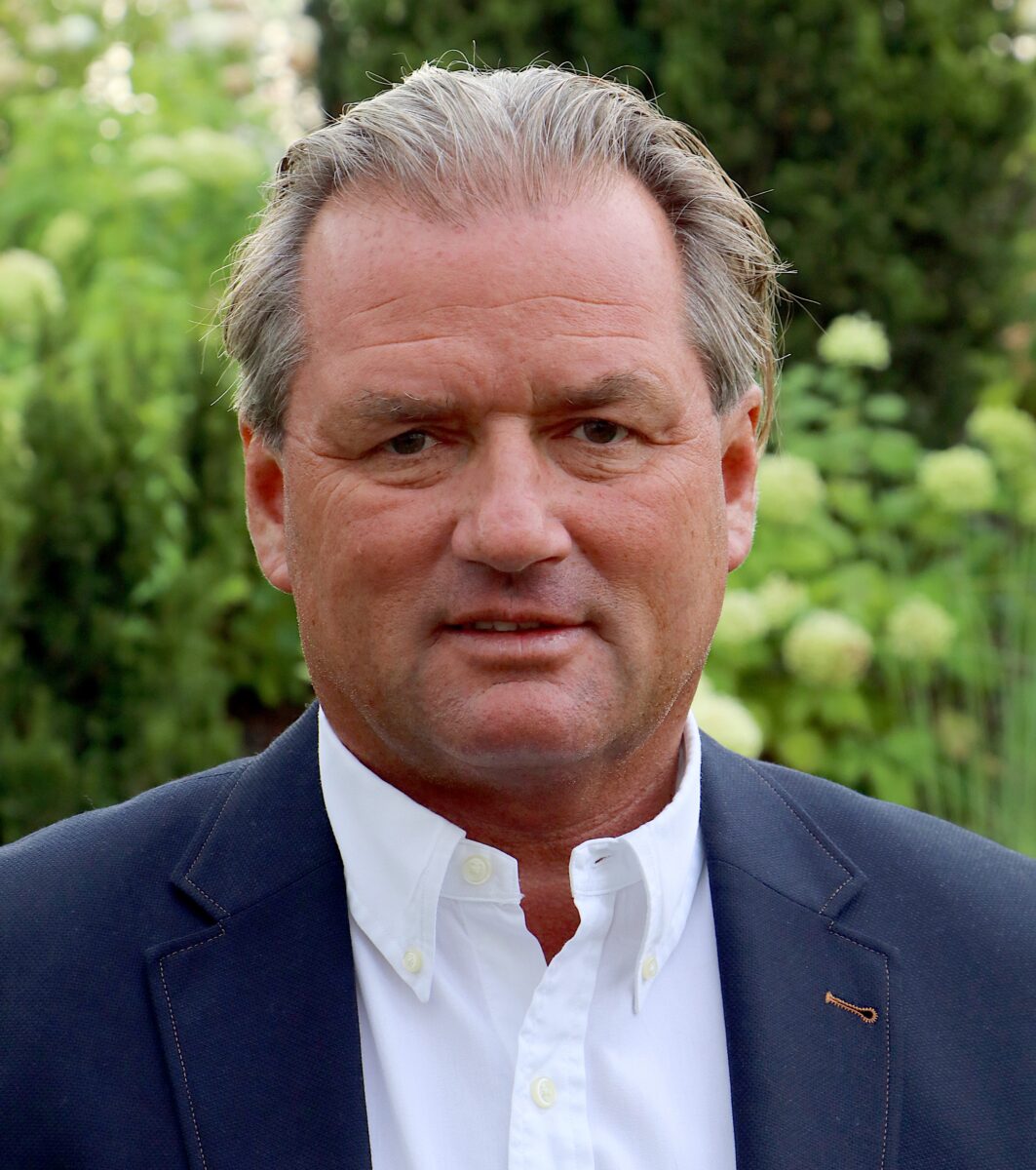
Thomas Reichenauer
Thomas Reichenauer is Co-Founder and Managing Director of ROS Retail Outlet Shopping.

